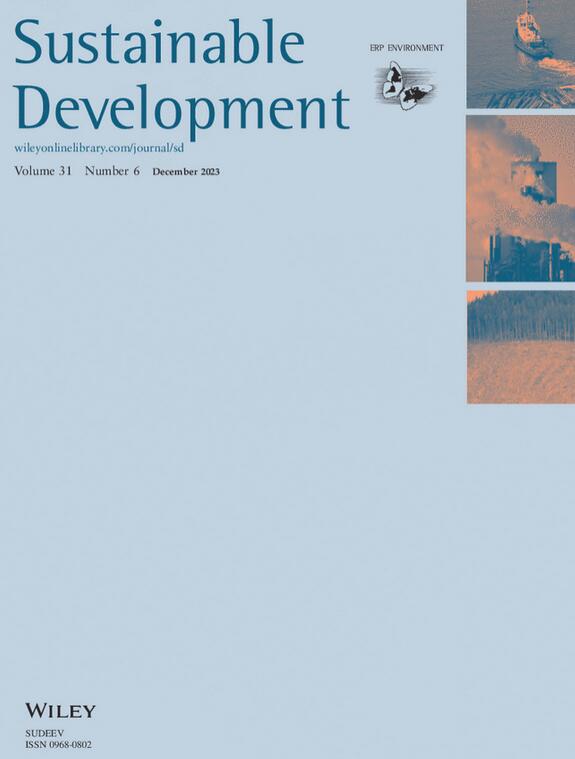Psychological approaches to sustainability: Implementing intervention model for sustainable development in physical education
IF 9.9
1区 环境科学与生态学
Q1 DEVELOPMENT STUDIES
引用次数: 0
Abstract
One of the pending challenges facing Education for Sustainable Development is to change students' behavior in favor of sustainability so that these are lasting and even transferable to other people. This study analyzes how various psychological factors, including motivation, attitudes, beliefs and emotions, can be channeled to enhance social and ecological awareness through education. This paper presents an innovative approach to Sustainable Development (SD) in education, focusing on Physical Education. It highlights the intersection of Psychology, education and sustainability, showing how the first two can contribute significantly to lasting changes in students' behavior. Based on this, the Intervention Model for Sustainable Development in Physical Education (PESDIM), which combines psychological theories with specific educational strategies, is presented. In this model, which can be replicated in other educational disciplines, psychological theories are based on social interaction and norms, identity construction, motivation, beliefs and individual efficacy to improve awareness of sustainable development. The paper highlights the need for a holistic and practical approach to sustainability education in general and Physical Education in particular, stresses the importance of psychology and advocates for an educational transformation that holistically integrates sustainability into teaching methods and objectives.可持续发展的心理学方法:在体育教育中实施可持续发展干预模式
可持续发展教育面临的挑战之一是如何改变学生有利于可持续发展的行为,使其持久,甚至可以传递给其他人。本研究分析了如何引导各种心理因素,包括动机、态度、信念和情感,通过教育提高社会和生态意识。本文以体育教育为重点,介绍了可持续发展(SD)教育的创新方法。它强调了心理学、教育学和可持续发展之间的交叉点,展示了前两者如何能够极大地促进学生行为的持久改变。在此基础上,介绍了体育教育可持续发展干预模式(PESDIM),该模式将心理学理论与具体的教育策略相结合。在这一可在其他教育学科推广的模式中,心理学理论以社会互动和规范、身份建构、动机、信念和个人效能为基础,以提高对可持续发展的认识。本文强调了对可持续发展教育,特别是体育教育采取整体和实用方法的必要性,强调了心理学的重要性,并倡导将可持续发展全面纳入教学方法和目标的教育变革。
本文章由计算机程序翻译,如有差异,请以英文原文为准。
求助全文
约1分钟内获得全文
求助全文
来源期刊

Sustainable Development
Multiple-
CiteScore
17.30
自引率
11.20%
发文量
168
期刊介绍:
Sustainable Development is a publication that takes an interdisciplinary approach to explore and propose strategies for achieving sustainable development. Our aim is to discuss and address the challenges associated with sustainable development and the Sustainable Development Goals. All submissions are subjected to a thorough review process to ensure that our readers receive valuable and original content of the highest caliber.
 求助内容:
求助内容: 应助结果提醒方式:
应助结果提醒方式:


